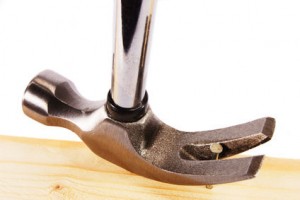The debtor’s power to avoid certain liens on his assets is one of the most powerful tools in the bankruptcy tool kit for achieving a truly fresh start in bankruptcy.
The general rule states that liens pass through bankruptcy unaffected by the discharge.
The bankruptcy discharge only eliminates the personal liability of the debtor. If the debtor’s property is also liable for a debt, that lien remains attached to the property.
After the bankruptcy, the creditor holding the lien can enforce the lien against the property, but cannot collect any shortfall from the debtor with a discharge.
That is, unless the lien is avoided.
So, what liens can be avoided and under what conditions?
Liens that impair exemptions
Liens that attach to assets that the debtor can claim exempt can be avoided to the extent the lien impairs (or eats into) the value of the exemption.
Lien avoidance is available in both Chapter 13 and Chapter 7.
Two different kinds of liens that impair exemptions can be avoided.
- A judicial lien (like a judgment or a garnishment), or
- A non possessory, nonpurchase money security interest in household goods or tools of the trade.
Tax liens ( which are statutory liens, not judicial liens) aren’t avoidable in Chapter 7 even if they impair exemptions; tax liens can be avoided in Chapter 13 to the extent the lien is greater than the asset’s value.
Does the lien “impair” the exemption?
Example: Home is worth $225,000 is subject to a mortgage of $175,000; a homestead exemption of $50,000; and a judgment lien of $65,000.
Since there is not enough equity in the home, after allowing for the consensual mortgage, to pay both the judgment lien and the exemption, the lien impairs the exemption, and can be avoided in either Chapter 7 or Chapter 13.
A lien may be avoided in part. That is, it is avoided only to the extent necessary to assure the debtor the full value of the exemption.
In the example above, if the house was worth $250,000, the mortgage was $175,000 and the homestead $50,000, the lien would be reduced to $25,000 and $40,000 of the lien is avoided.
A lien that is avoided is forever void and of no effect so long as the debtor completes the case and gets a discharge.
Is the lien a non possessory, non purchase money security interest?
This cumbersome phrase describes the typical finance company lien in which the borrower pledges his household goods, appliances, jewelry, etc. to the lender.
These liens are taken by the lender, not because those items have enough value to repay the loan, but because the threatened loss of those items terrorizes borrowers.
These liens can be avoided if the lien attaches to household goods, clothing, jewelry, pets, and musical instruments, tools of the trade or professionally prescribed health aids.
Action required to avoid a lien
To avoid a lien, the debtor must file a motion setting forth all of the statutory elements that entitle him to avoid the lien and serve the motion on the creditor whose lien is to be avoided. 11 U.S.C. 522(f).
Some courts require a hearing. Others will avoid a lien if the creditor affected doesn’t object on a timely basis.
Avoiding the involuntary transfer of exempt property
The bankruptcy code takes the idea of assuring the debtor of the right to exempt property a step further and allows the debtor to recover property that a creditor has taken possession of before the bankruptcy is filed.
If the debtor could have claimed that property exempt if it had not been garnished and the transfer took place within 90 days of the bankruptcy filing, the debtor can sue in the bankruptcy court to recover the property. 11 U.S.C. 522(h).
Again, an action filed with the court is usually required.
More
Stripping underwater mortgages
What if you forgot to avoid lien?
Image: © Richard Griffin – Fotolia.com

